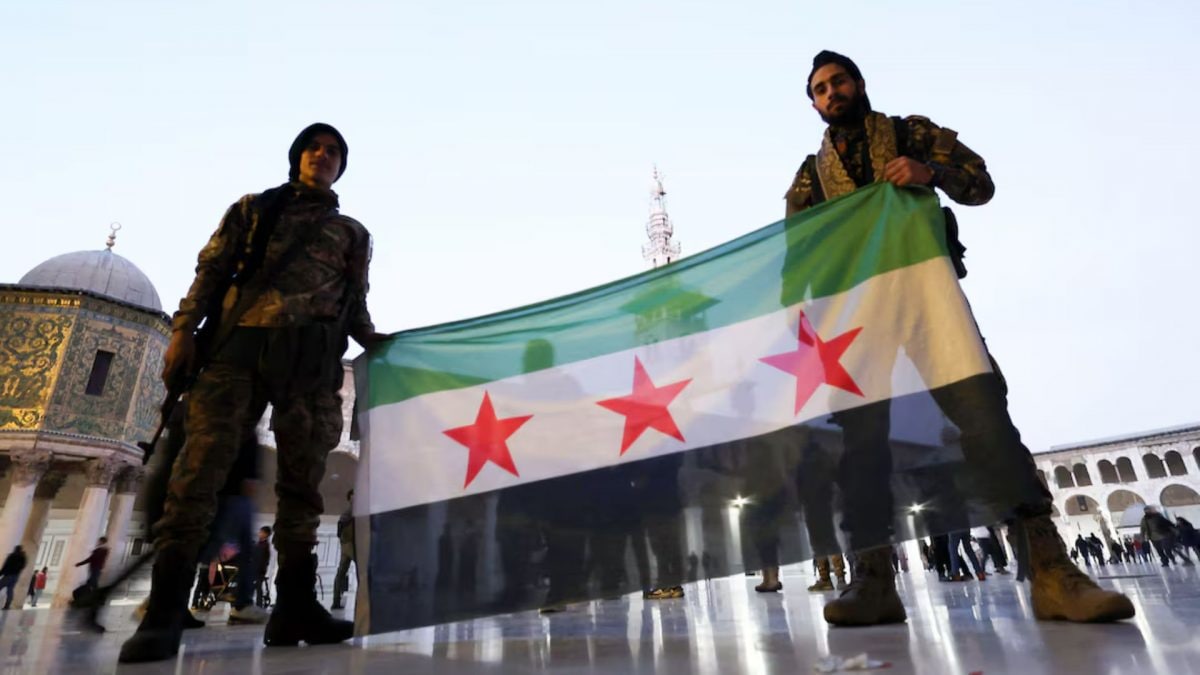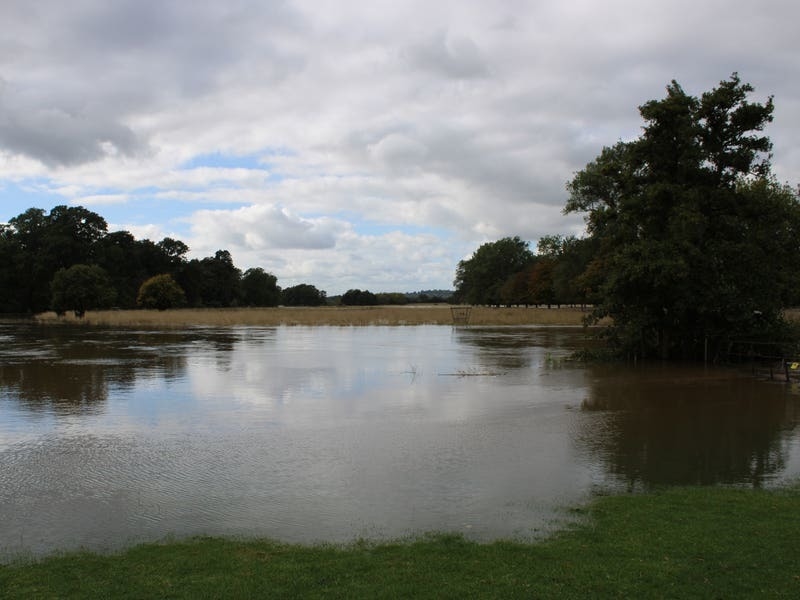
The turn of events in the Syrian civil war has hit the world like a tsunami. Syrian rebels have ousted President Bashar al-Assad after seizing Damascus, marking the end of over 13 years of brutal civil war. The rebels were led by the Islamist alliance Hayat Tahrir al-Sham, or HTS, along with an umbrella group of Turkish-backed Syrian militias called the Syrian National Army.
The fall of Aleppo, Hama, Daraa, and now Damascus to the rebels, like a pack of cards in a matter of days, shows the people’s mood and minimal resistance. The Syrian president, Bashar al-Assad, is believed to have fled the country his family has ruled over for 50 years, and he was the 19th president of Syria from July 2000 to December 2024. Assad joins the legacy of infamous leaders who lost control and fled with a fate that does not seem bright.

The Middle East has a knack for keeping the pot boiling. While the curtains were being drawn with the Israel-Hezbollah ceasefire, the volcano of the decade-old brutal Syrian Civil War burst, and its lava engulfed the region and its proxies. Damascus, the heart of Assad’s control and the symbolic bastion of his regime, fell to rebel forces on Sunday.
The rapid advance, led by HTS, was a culmination of weeks of coordinated offensives. The rapid crumbling of President Bashar al-Assad’s regime signals not just a transformation in Syria’s political landscape but also the dawn of a new era in the Middle East and global geopolitics. Geopolitical Shifts Iran: A Strategic Defeat The exit of Assad and the fall of Syria into the Sunni-predominant rebels’ hands marks a setback to Iran’s regional agenda.
Tehran’s “Shiite Crescent” across the Middle East from Lebanon to Yemen is now at risk of collapsing. Iranian-backed Hezbollah, having suffered devastating losses from recent Israeli strikes, has added to its ambition woes. Many Iranian establishments in the Syrian capital of Damascus, such as the embassy, have been attacked by rebels, as evidence of declining influence.
Russia: The Limits of Power Russia, Assad’s strongest ally, faces a setback and loss of face, undermining Moscow’s broader geopolitical influence in the region. Tied up by the war in Ukraine and being subjected to Western economic sanctions, Russia failed to provide the resources necessary to back up Assad’s fragile regime. The swift collapse of key cities like Homs and Damascus indicates a waning Russian influence.
President-elect Donald Trump commented on X: “Russia and Iran couldn’t hold onto Assad. Syria is not our fight, but this is a major failure for them!” Moscow’s retreat from Syria reflects its waning influence in a region where it once wielded significant power. Turkey: Expanding Influence In contrast, Turkey has emerged as a key player, leveraging its support for rebel groups to expand its influence in northern Syria.
Turkish-backed groups like HTS have played a pivotal role in recent victories, signalling Ankara’s intent to shape Syria’s future while countering Kurdish autonomy movements and addressing domestic pressure to repatriate Syrian refugees. Israel: Guarding Against Instability For Israel, the fall of Assad introduces both opportunities and risks. While a weakened Iran in Syria aligns with Israeli interests, the possibility of an Islamist-led government backed by Turkey raises new concerns.
Israel continues its airstrikes to prevent Iranian militias from re-establishing supply lines, underscoring its vigilance amid the uncertainty. The United States: Strategic Dilemmas The US, maintaining a small force in northeastern Syria, faces a complex challenge. While focused on preventing an ISIS resurgence, Washington must now consider its stance on a transitional government that includes HTS, a former al-Qaeda affiliate.
Deputy Assistant Secretary of Defence Daniel Shapiro stressed at the Manama Dialogue that US forces would remain to safeguard regional stability. President-elect Donald Trump reiterated his belief that the US should not intervene in Syria, stating, “Syria is a mess but is not our friend, and the United States should have nothing to do with it. This is not our fight.
Let it play out. Do not get involved!” Yet the US has over 900 troops in Syria, which are vital for preventing an ISIS resurgence. Any step back by the US risks a power vacuum that could be exploited by anti-US Islamist forces.
India: Quest for Peace and Stability India, concerned for its diaspora in Syria, issued a travel advisory urging its citizens to leave. Approximately 90 Indians, including UN workers, remain in the country. This measured response reflects New Delhi’s dual priorities: protecting its citizens while navigating the geopolitical complexities of the Middle East.
The threats of the Islamisation pandemic loom at large in the immediate neighbourhood. This India seeks peace and stability in the region. A Fragile Political Transition Even as Assad’s regime ends, Syria’s future remains uncertain.
The rebels’ stunning progress masks deep divisions among opposition groups, raising the spectre of prolonged internal conflict akin to post-2003 Iraq. A fractured Syria could create space for extremist factions and terror groups like ISIS to resurge, further complicating stabilisation efforts. Prime Minister Mohammad Ghazi al-Jalali called for free elections, emphasising the need for unity and reconciliation.
His outreach to HTS leader Abu Mohammed al-Golani marks an unprecedented effort to shape a transitional government. Golani, whose group spearheaded the rebel advance, has pledged to prioritise stability and avoid the chaos that followed the fall of Saddam Hussein in Iraq. Analysts warn, however, that HTS’s Islamist roots and controversial past could complicate international recognition and support.
Regional Powers, Proxies, and Uncertainties The United Arab Emirates, a staunch opponent of Islamist movements, has expressed concerns over HTS’s influence. “Syria is not out of the woods yet,” said UAE Presidential Advisor Anwar Gargash, emphasising the need for moderation and inclusive governance. Israel, while relieved by the weakening of Iran’s position, remains wary of HTS’s potential to impose Islamist rule or incite instability near its borders.
Efforts to mediate a political resolution are critical. The global community, regional players, and the United Nations must focus their efforts to prevent Syria from becoming Iraq, albeit another failed state. However, conflicts of interest by proxies like Turkey, the US, Russia, and Iran will remain a challenge to peace and stability.
The fall of Assad is a turning point, but Syria’s future remains uncertain. Deep divisions among opposition factions, the threat of extremist resurgence, and the challenges of rebuilding a shattered nation loom large. The threat of Islamist forces in control remains a global concern and a possible trigger with the Taliban.
In Afghanistan, HTS in Syria and many countries are reeling under the grip of Islamist forces. The latest is Bangladesh, which is falling back in history to the dark era of East Pakistan. While for the Middle East, the fall of the Assad regime is a moment of reckoning, for the world, it is a test of diplomacy.
As Syria begins a new era, the future remains fraught with uncertainty, symbolising either peace or peril in the nation’s history. The author is former Director General, Mechanised Forces. Views expressed in the above piece are personal and solely those of the author.
They do not necessarily reflect Firstpost’s views..










